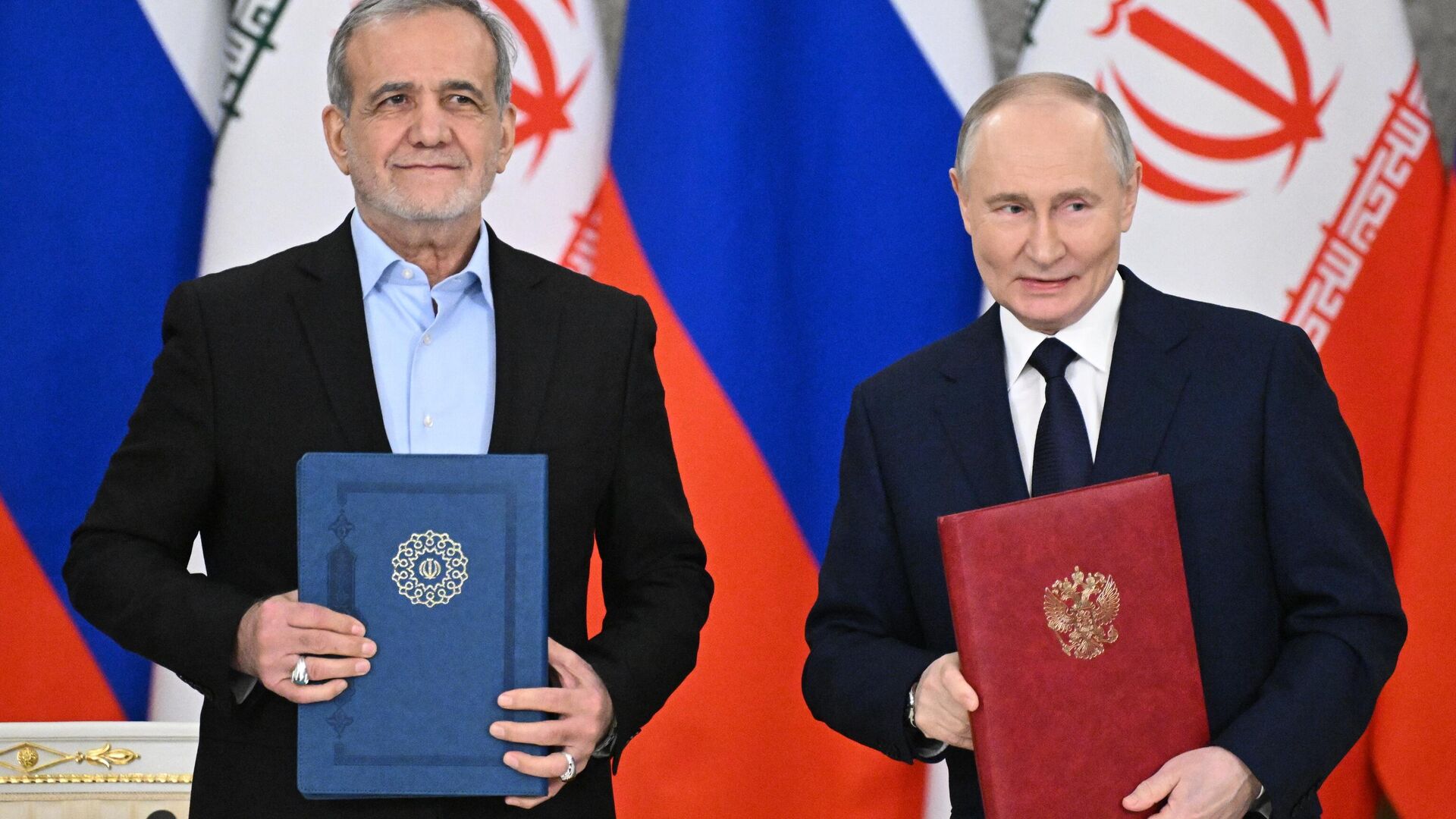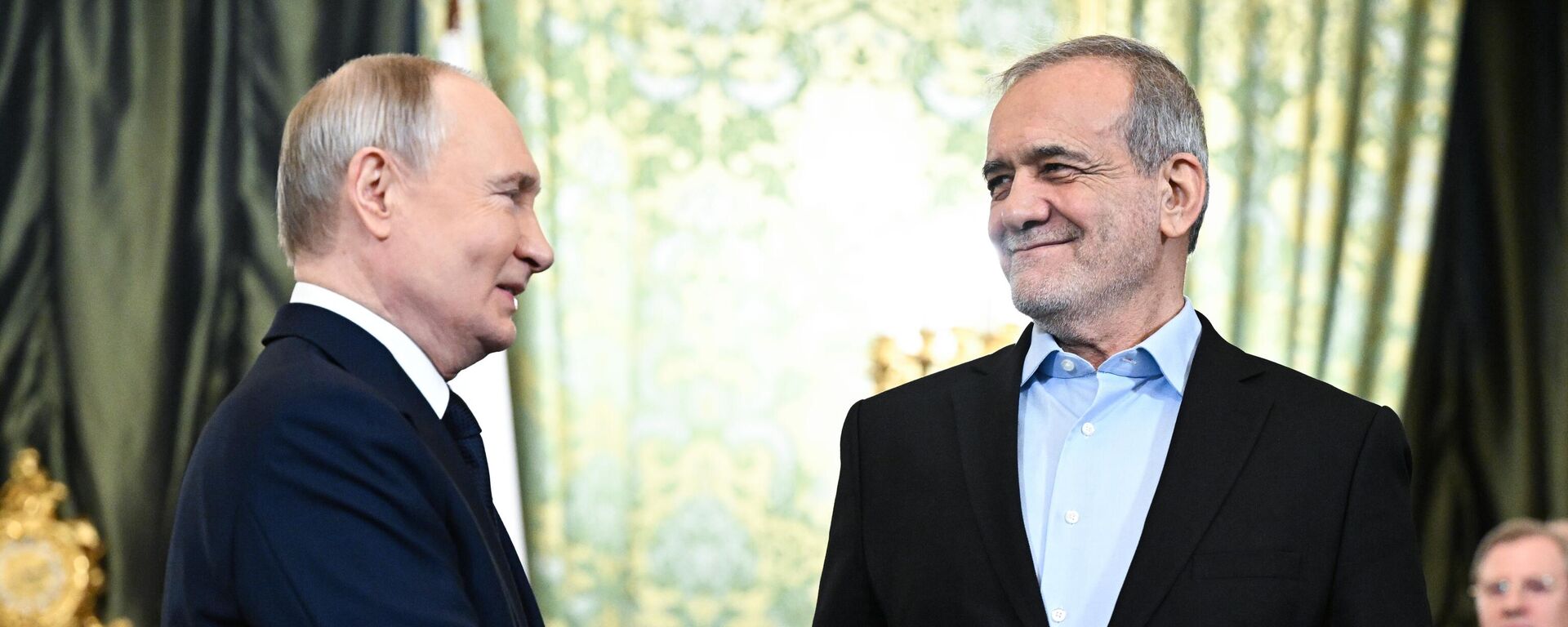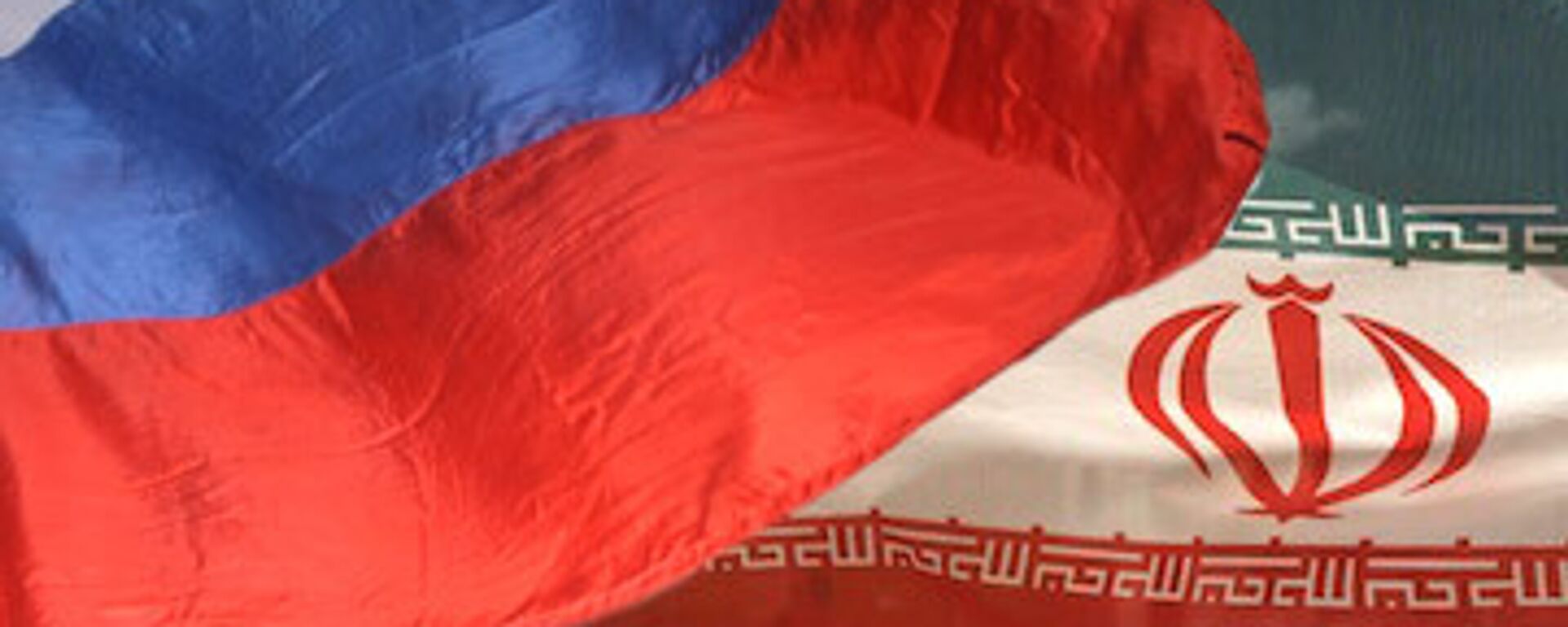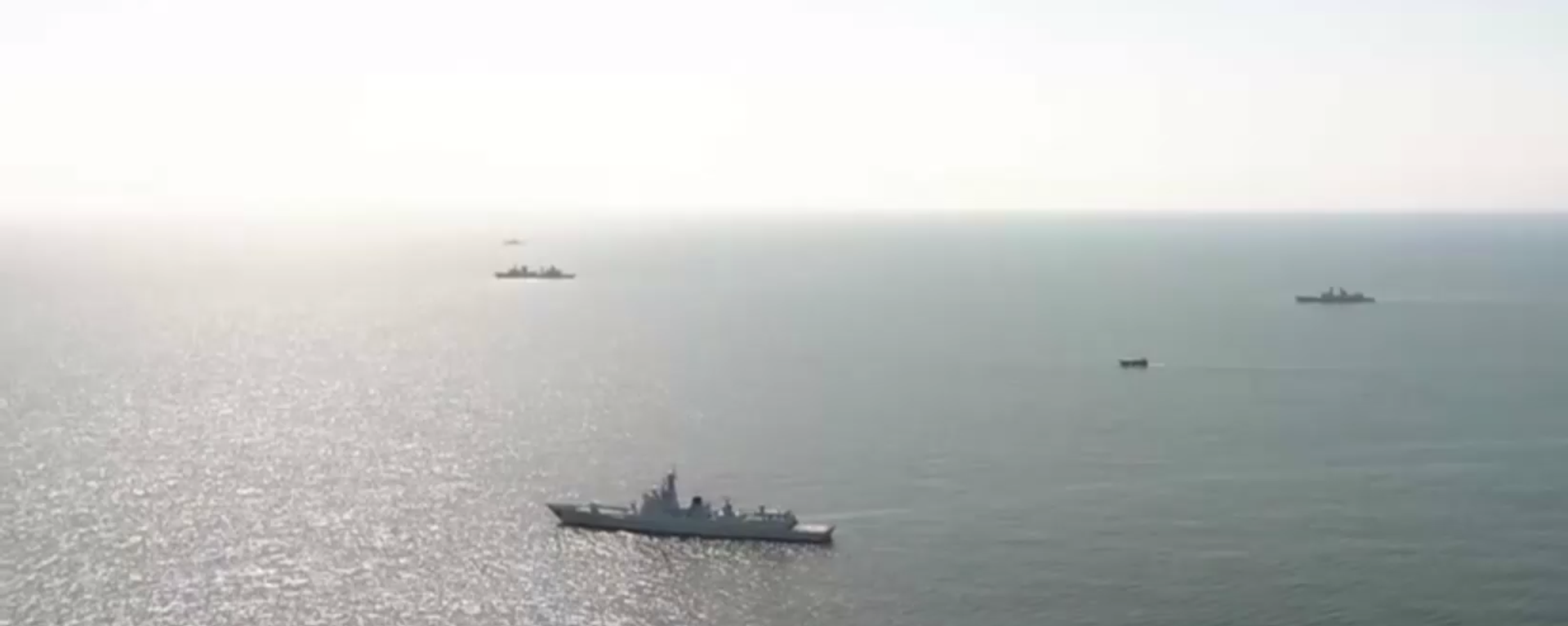Russia and Iran Cement Strategic Alliance With New Agreement
15:10 GMT 17.01.2025 (Updated: 15:47 GMT 17.01.2025)

© Sputnik / Sergey Bobylev
/ Subscribe
Russian President Vladimir Putin and his Iranian counterpart Masoud Pezeshkian signed a comprehensive strategic partnership agreement at the Kremlin.
The new agreement replaces a previous cooperation framework signed in 2001 — and reflects the enhanced level of relations between the two nations.
Work on the agreement began in 2022, and by June 2023 the text had been finalized. The document sets ambitious goals, targeting stable and sustainable development for both countries and the broader region.
Key Highlights From Putin’s Statements
The Agreement
Aims to bring relations to a new qualitative level
Lays the groundwork for stable and sustainable progress
"Great prospects are opening up for us in connection with the development of the INSTC," Putin told reporters after talks with Pezeshkian. "Discussions continue on issues related to the construction of its section that includes the Rasht-Astara railroad line."
Russia-Iran Relations
Constructive and friendly dialogue was a hallmark of the talks
Russia prioritizes strengthening ties with Iran
Shared positions on most foreign policy issues
Both nations pursue independent global courses and resist external pressures and illegitimate sanctions
Economic cooperation is growing, with the International North-South Transport Corridor opening new opportunities
"The flagship joint project for the construction of two new Bushehr NPP units by Rosatom is progressing," Putin said. "Its implementation will certainly make a significant contribution to strengthening Iran's energy security, stimulate further growth of the national economy, and provide Iranian households and industrial enterprises with inexpensive and environmentally friendly electricity."
Regional and Global Cooperation
Joint efforts to maintain stability in the South Caucasus
Commitment to a comprehensive solution for Syria
Discussion of Gaza and hopes for stability through agreements
Iran’s Perspective
Iranian Foreign Minister Abbas Araqchi stressed that the agreement covers economic, technological and humanitarian collaboration.
It sets a roadmap for the future, including defense and security cooperation, increased trade, energy production and exports, renewable energy technology transfer and simplified travel conditions for tourists. The new pact also aims to enhance cultural exchanges and create joint programs.




